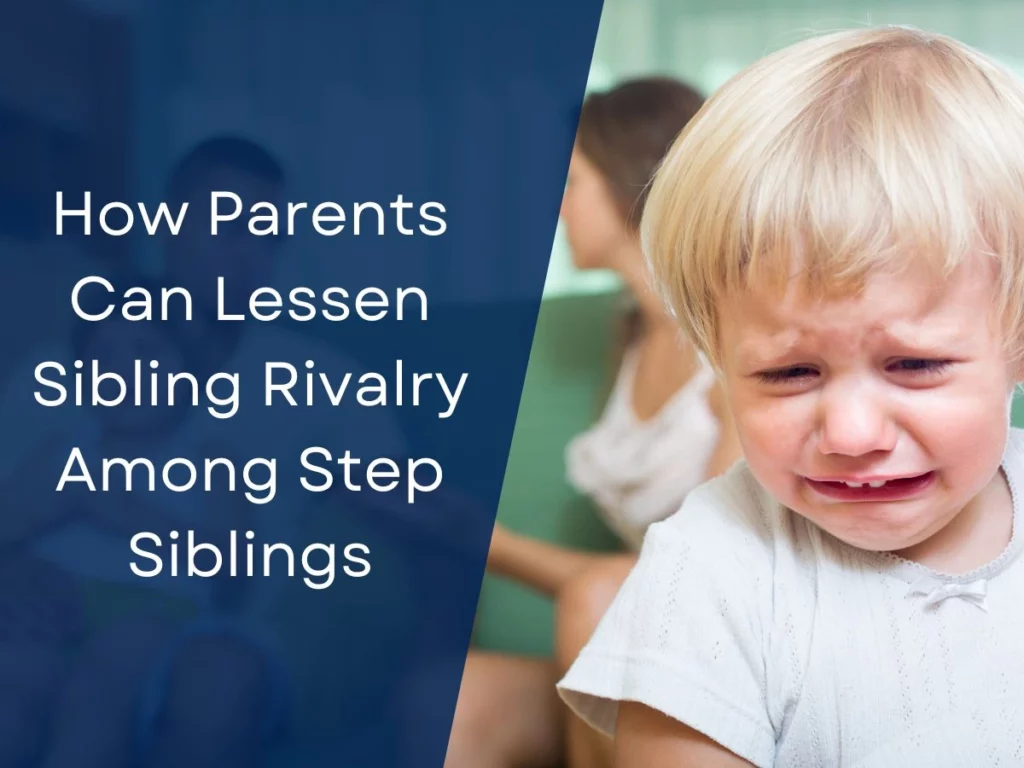Families with multiple children are fully aware of the realities of sibling rivalry, and blended families usually see more instances of it. Step siblings are usually weighing each other and protecting turf.
Some children want to maintain their normalcy while others are simply trying to cope with the changes in their surroundings. But even the most amiable of relationships will have its share of arguments and fights.
Life after divorce is never easy for adults or children, but with the right tools, families can minimize the instances of sibling rivalry among step siblings.
You can gain harmony and peace – but it will require diligence and insight. When an excellent sibling relationship is created early, and siblings learn how to handle disagreements among each other, you will notice that the instances of sibling rivalry among step siblings decreases.
When this happens, your family can enjoy more of the good times.

What is a Sibling and Why Is There Conflict Among Siblings?
First, what is a sibling? This person is your brother or sister, related to you through your biological parents.
On the other hand, your step siblings are related to you via your stepmother or stepfather, who has a relationship with one of your biological parents.
Reasons for Sibling Conflict
Let’s examine the reasons for infighting among brothers and sisters.
Different triggers cause different types of clashes. It could be about who wants to use the bathroom first in the morning, or whose turn it is to wash the dishes. Regardless, there is always an underlying reason for why clashes happen.
You need to find the root of the dissension to get to the bottom of it.
Generally, people butt heads because of personality differences. At other times, there are unresolved emotions that have been bubbling below the surface for quite some time. These emotions can stem from sibling jealousy where one child may be receiving preferential treatment in some way. The other child looks at this and thinks that it is unfair.
Because they usually don’t know how to voice their opinion without receiving backlash or being criticized, they react in a hasty manner towards their step sibling. Also, younger children might think that they are prevented from doing certain things because of their age or temperament.
Wherever children see preferential treatment towards one sibling or step sibling, even if it is unintentional, they are going to have a problem with it.
What Strategies Minimize Sibling Rivalry?
No matter the reason, it is imperative that parents engender a healthy relationship among siblings so that they fight less, share more, and can reason out their disagreements without adult interference.
Train your Child How to Resolve Conflicts
Teach your children positive conflict resolution skills.
Ensure that they know that each person’s opinion is valid and that it is important to listen to each other and consider their perspective. Make sure that they understand that name-calling is unacceptable and that they can talk to each other without demeaning one another.
Over time, these children will become better negotiators and can resolve conflicts easily. They will know how to compromise and take account of someone else’s feelings and opinions.
If they start grasping these skills at an early age, you will gradually see a shift in the relationship between step siblings.
Spread Happiness in Your Family
De it clear that your family unit is like a team. And for your team to thrive, you must work and live in harmony. Show them that fighting and arguments only take away from the general wellbeing of the unit.
You’re the Adult – Intervene When Necessary
Many parents are passive when it comes to diminishing the occurrences of sibling rivalry. This is not wise. One child could be feeling continually bullied or depressed, while the other thinks that it is fine to treat people poorly to get their way.
Allowing such behavior to go unchecked is not good and is even harmful to your children’s psychological wellbeing.
Stop ANY Kind of Abuse in its Tracks
Never let confrontations get physical. Only when children are actively using conflict resolution skills should you allow them to resolve issues among themselves. You want them to be peaceful, positive, and practical in how they resolve conflict.
If your kids are fighting when you are not around, ensure that you get a detailed report from both parties. Discuss their participation in the disagreement and help them work out how they could have handled the situation differently. Discipline your children when necessary, but make sure to instill in them that hitting someone is unacceptable behavior.
Violent kids turn into violent adults. Teach them that physical aggression and verbal abuse are unacceptable.
Never Take Sides Among Your Family
Be an impartial listener. Don’t tell one child they were right and then go and do the same with the other child. This will make matters worse.
Instead, let each sibling understand that their opinion matters, that you listened objectively, and then explain to them how they could have resolved the issue differently.
Many times, simply being heard helps a child to feel better.
Children copy what they see in adults, so be a good example for your kids and you’ll be able to see changes in how they interact with one another.
